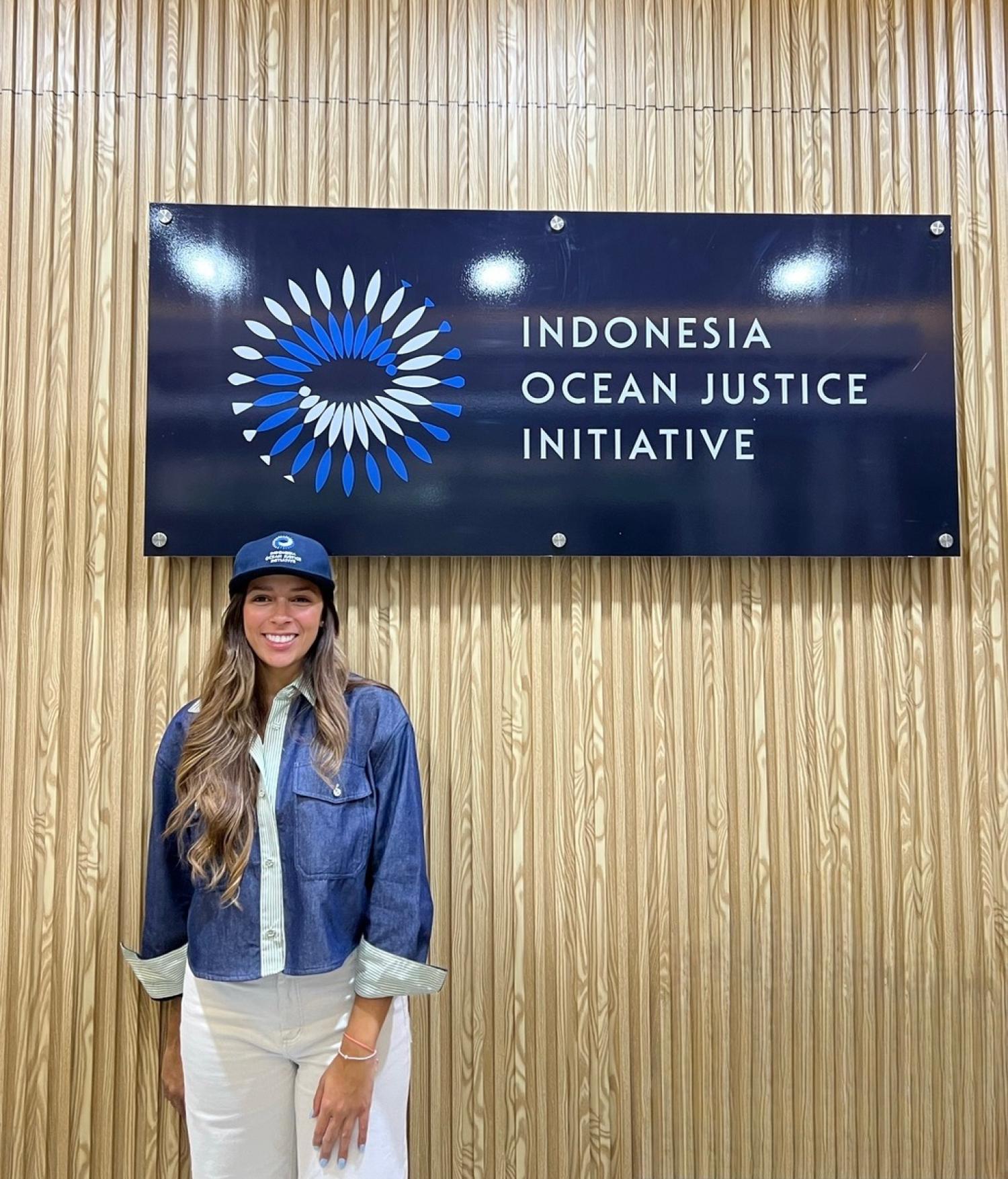Harrison Fellow Spends Summer Immersed in International Law Practice
Thanks to the GWC and the David Harrison Innovations in Water and Energy Law & Policy Fellowship, I had the incredible opportunity this summer to work in Jakarta, Indonesia with the Indonesia Ocean Justice Initiative (IOJI). This fellowship made it possible for me to immerse myself in international law practice in another country, gaining firsthand experience in the intersection of environmental protection, maritime security, and human rights.
During my time at IOJI, I authored a report examining the challenges of combating illegal, unreported, and unregulated (IUU) fishing and the gaps in governance that allow it to persist. My research focused particularly on the high seas and distant-water fishing fleets, including their links to labor exploitation and environmental degradation. Additionally, I collaborated with a colleague on a comparative legal analysis, evaluating how environmental protection is addressed at a national scale in the United States versus Indonesia. This comparative perspective illuminated both the strengths and weaknesses of each country’s legal frameworks and underscored the importance of strong enforcement mechanisms.
One of the highlights of my fellowship was attending a conference at Indonesia's Ministry of Marine Affairs and Fisheries, hosted in honor of the International Day for the fight against IUU fishing. Here, IOJI presented research and recommendations to government officials, civil society organizations, and academics. This was an invaluable opportunity to see how legal and policy work translates into tangible advocacy at the national level.
Beyond the capital, I traveled with the IOJI team to more remote Indonesian islands, where we hosted community town halls to hear directly from local fishers and residents. Many shared stories of the hardships they endure due to rampant IUU fishing, insufficient maritime security, and gaps in both human rights protections and environmental law enforcement. Listening to these experiences reinforced the reality that legal and policy solutions must be grounded in the realities of those most affected.
Our work in the field was also about building solutions. We collaborated with other civil society organizations, academic partners, and government agencies to develop actionable recommendations aimed at strengthening Indonesia’s maritime governance and protecting both marine ecosystems and the communities that depend on them.
This experience gave me a deeper appreciation for the interconnectedness of environmental law, human rights law, and international maritime policy. It also showed me the vital role that lawyers can play in bridging the gap between high-level policy and on-the-ground realities.


